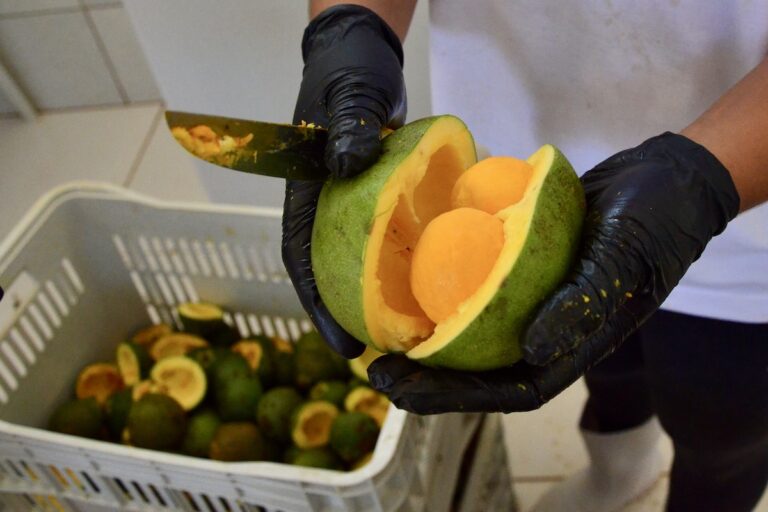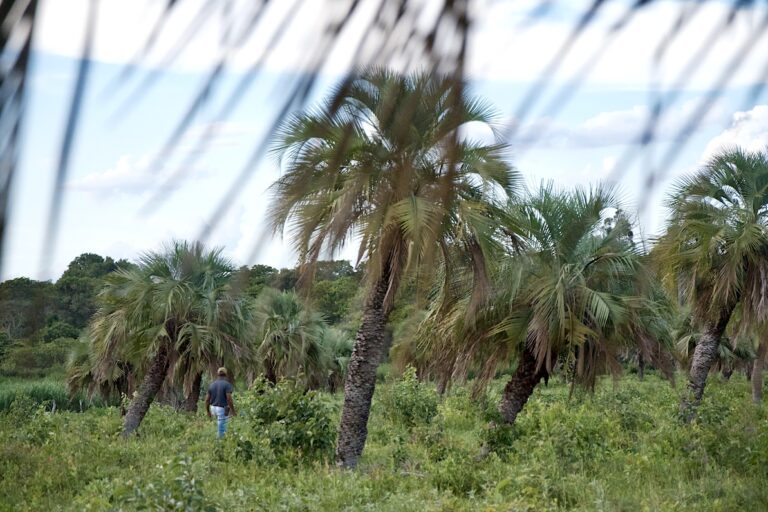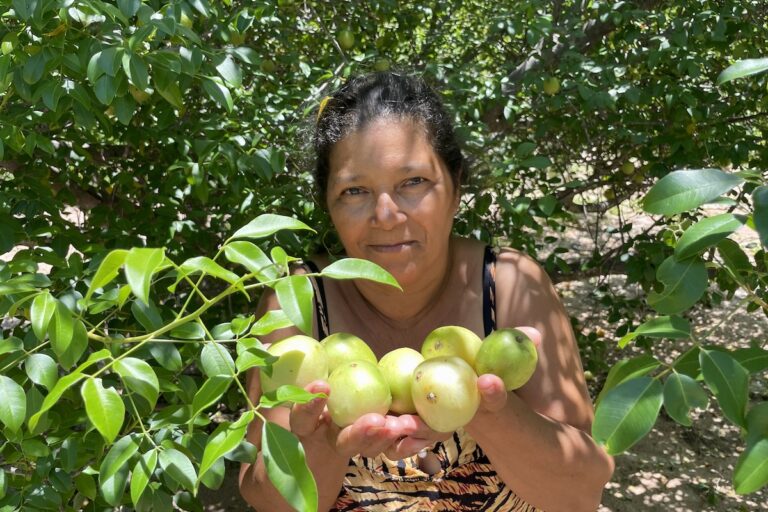The northern region of Minas Gerais in Brazil has seen traditional communities, including geraizeiros, veredeiros, Quilombolas, and Indigenous groups, generating income through the sustainable harvesting of native fruits like umbu, buriti, coquinho azedo, and pequi.
The Grande Sertão Cooperative has been pivotal in this endeavor, supporting around 2,000 families across 36 municipalities and processing significant quantities of fruits, such as 700,000 kilograms of pequi during the last harvest. This initiative not only provides economic opportunities for local communities but also helps preserve threatened biomes like the Caatinga, which is currently facing significant deforestation.
For individuals like Maria Neves Almeida and Maria José dos Santos, known as Zezé, harvesting native fruits has become a vital source of income and a way to reconnect with their traditions and environment.

Profiting from Native Fruits: Communities Between Brazil’s Caatinga and Cerrado (Credits: Mongabay)
With the decline of cotton farming due to pest infestation in the 1990s, communities turned to native fruits as a sustainable alternative, leading to improvements in both livelihoods and health. The transition from harmful practices like pesticide use to fruit cultivation has contributed to better overall well-being among community members.
The recovery of native fruits not only benefits the economic and health aspects of traditional communities but also plays a crucial role in ecosystem preservation. The appreciation of fruits like pequi, often referred to as the “meat of the hinterland,” helps sustain biodiversity in regions threatened by activities like livestock farming, charcoal production, and monoculture agriculture.
Organizations like the Grande Sertão Cooperative, supported by partners like WWF and the Banco do Brasil Foundation, facilitate the marketing and distribution of these fruits, ensuring fair returns for small-scale farmers.
Efforts to protect native fruits have led to the implementation of laws and programs aimed at preserving species like the pequi tree, which is now immune from logging in certain regions. Programs such as the Pro-Pequi Program provide incentives for the production and commercialization of native fruits, ensuring the security of extractivists who rely on fruit harvesting for their livelihoods.

Profiting from Native Fruits: Communities Between Brazil’s Caatinga and Cerrado (Credits: Mongabay)
Initiatives like the Food Acquisition Program and the National School Feeding Program support the consumption of products from family farming, further bolstering the value of native fruits.
The economic impact of fruit extraction is substantial, with millions of reais circulating within the region, surpassing profits from other agricultural products like pumpkins and coconuts. Extractivism offers a sustainable alternative to activities like charcoal production, encouraging communities to invest in the preservation and cultivation of native fruit trees.
The success stories of individuals like Pedro Pereira da Mota and Sueli Rodrigues Santos illustrate how the cooperative model has empowered extractivist families, leading to tangible improvements in their quality of life.
As climate change and water scarcity pose challenges to fruit harvests, there is a growing recognition of the importance of preserving ecosystems like the Cerrado and Caatinga. These biomes play a crucial role in maintaining water resources, making initiatives to protect native fruits increasingly urgent.
By empowering traditional communities to sustainably manage their territories and resources, initiatives like the Grande Sertão Cooperative contribute not only to local livelihoods but also to global efforts in biodiversity conservation and climate resilience.
























